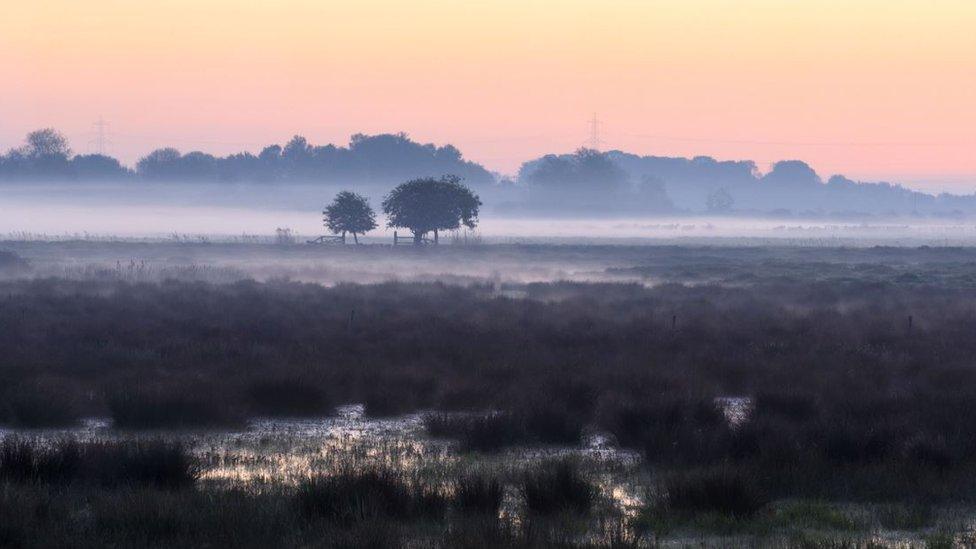Oldest National Trust reserve Wicken Fen 'a mecca for naturalists'
- Published
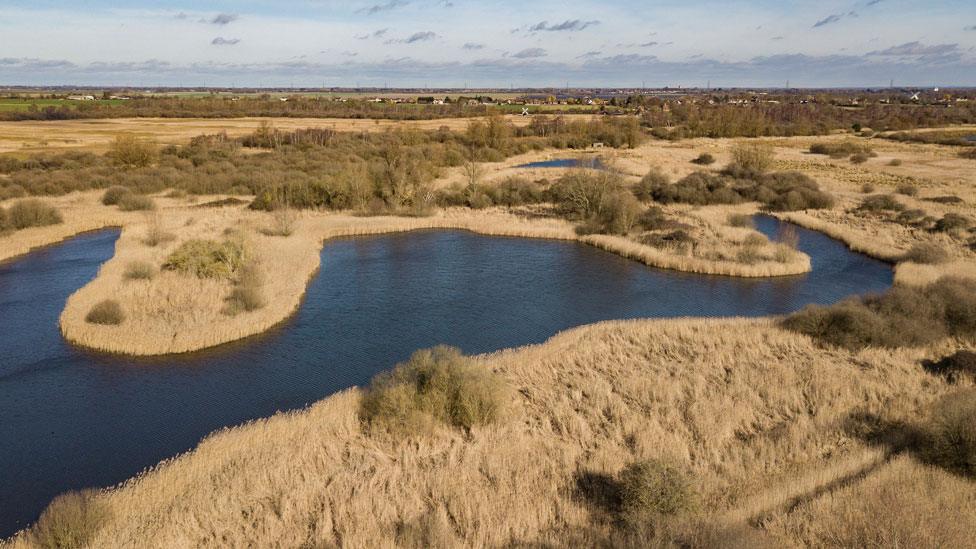
The origins of the nature reserve date back to 1899, when two acres of undrained Cambridgeshire fenland were donated to the newly-formed National Trust
The National Trust is marking 125 years since it acquired its first nature reserve - a rare wetlands habitat.
Wicken Fen has been "a mecca for local naturalists" because it is one of Cambridgeshire's last pieces of undrained fen, the charity said.
The first two acres (0.8ha) of land were bought in 1899. The reserve now extends across 2,053 acres (830ha).
The trust's Isabel Sedgwick an "anniversary programme of events and activities" will begin in May.
Countryside manager Alan Kell said Wicken Fen was now the "one of the most species rich recorded sites" in the UK.
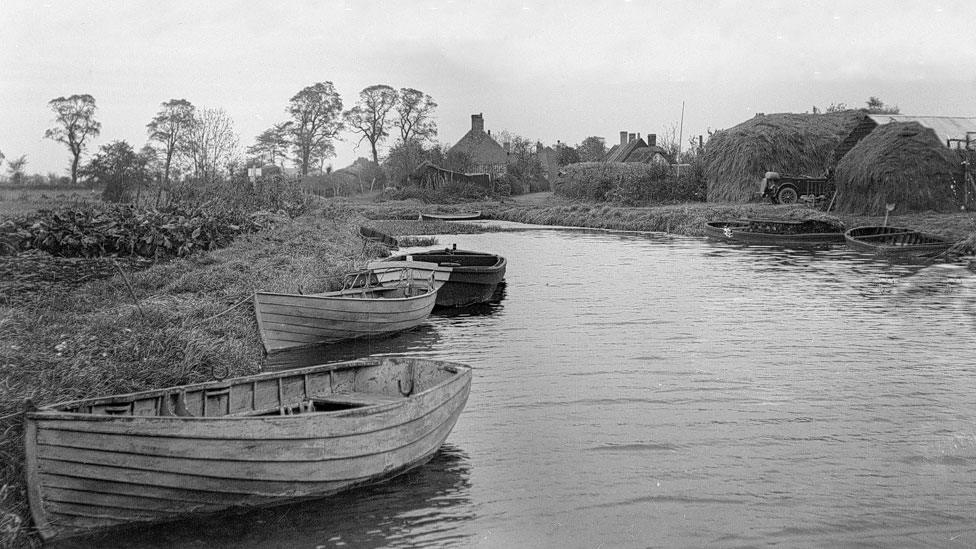
By 1926, the reserve acquired another 705 acres (285.3ha) and this view shows Wicken Fen in 1929
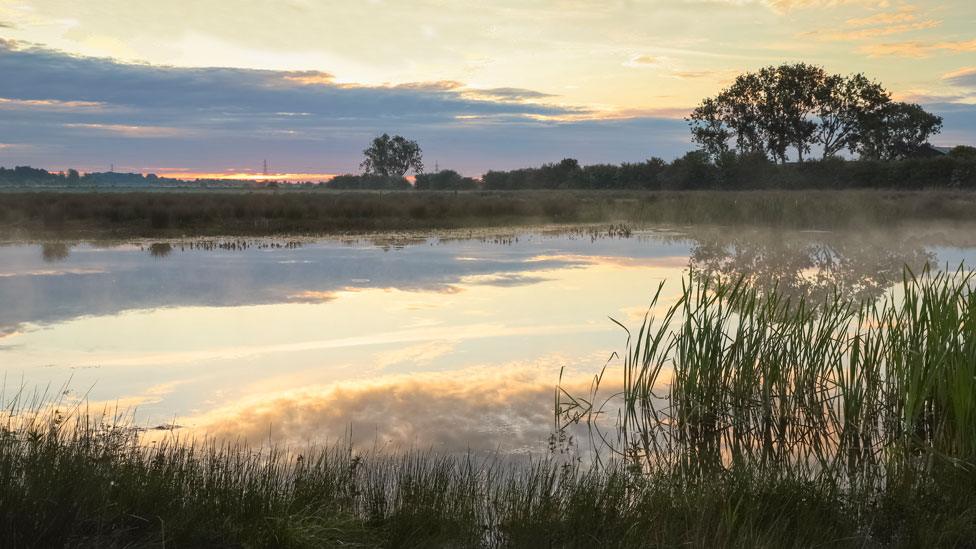
The reserve has since expanded to 2,053 acres (830ha), with half of that land acquired since 1999
"The National Trust was set up to protect natural and historic places and we've got one of the last remaining fragments of undrained fenland here," Mr Kell said.
"This is huge historically, but it is also one of the most scarce habitats [in the UK], so it is about protecting and expanding it."
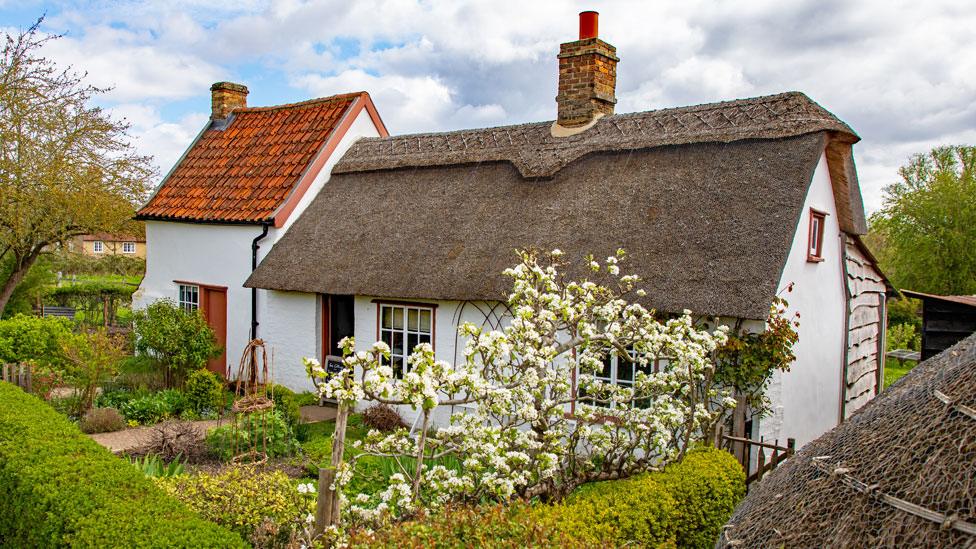
Fen Cottage, near Wicken Fen's visitors' centre, is all that remains of the once-thriving community of fen-men and their families who lived in the area
The area makes up less than 1% of the original fenland that dominated the east of England back in the 17th Century.
From then onwards, the wetland habitat was drained by wealthy merchant and landowning investors, who wanted to unlock the peat soils for cultivation.
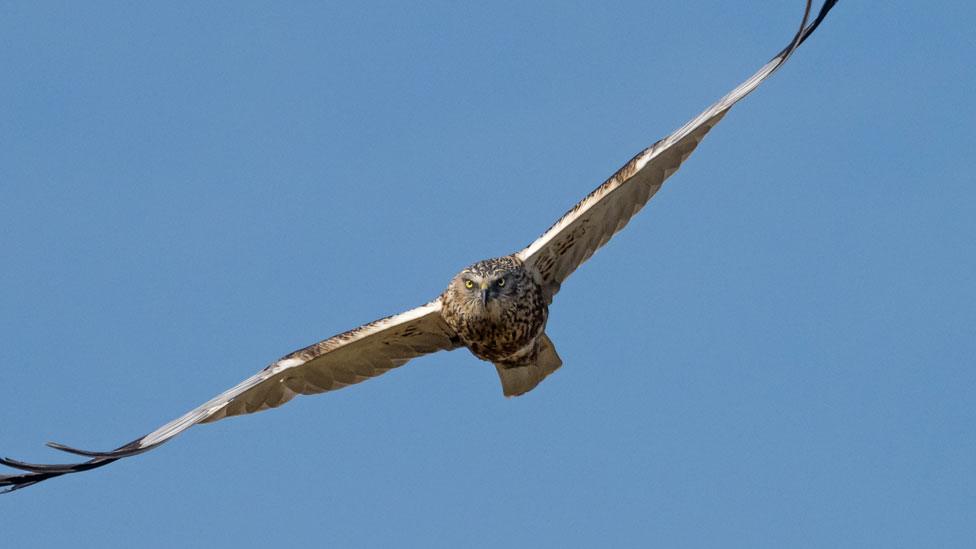
The reserve is now home to 188 endangered species, including the marsh harrier
Wicken Fen offered 19th Century botanists and entomologists rare access to what little remained of its original, diverse habitat, and it became "a mecca for local naturalists", said Mr Kell.
Some sold or gifted their land to the National Trust shortly after it was set up in 1895.
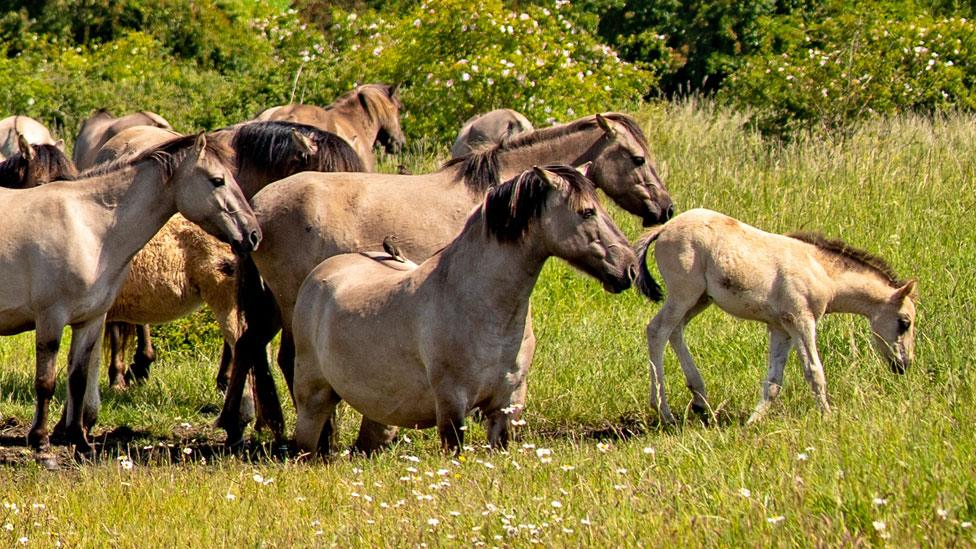
Large mammals like Konik ponies have helped transform former agricultural land into species-rich wetland
The trust has more than doubled the size of the reserve since 1999, as part of the Wicken Fen Vision, which is marking its 25th anniversary.
Mr Kell said: "This is a natural process-led management system, which has led us to be one of the front-runners in conservation."
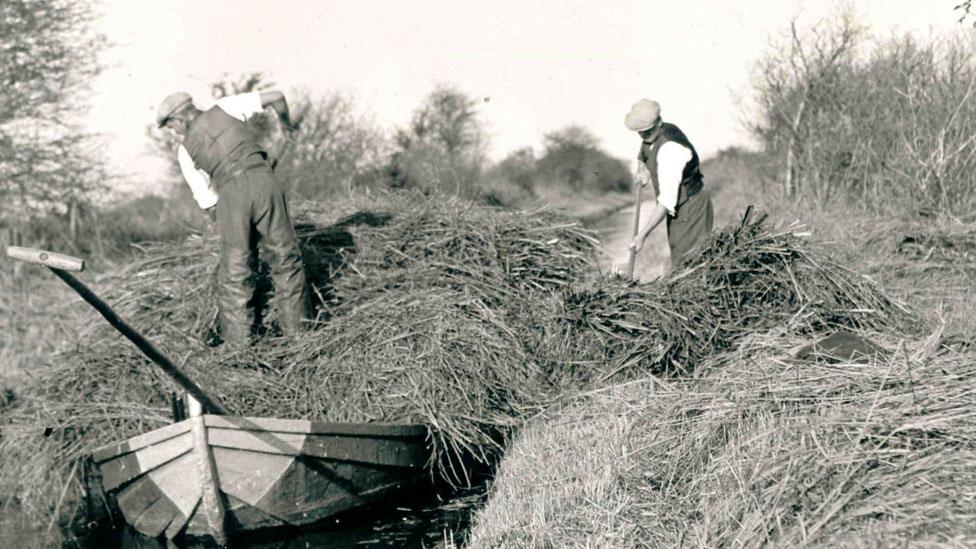
For centuries, the vegetation was cut and cleared by hand, as seen above in 1935, and more recently tractors, turners and bailers would do the work
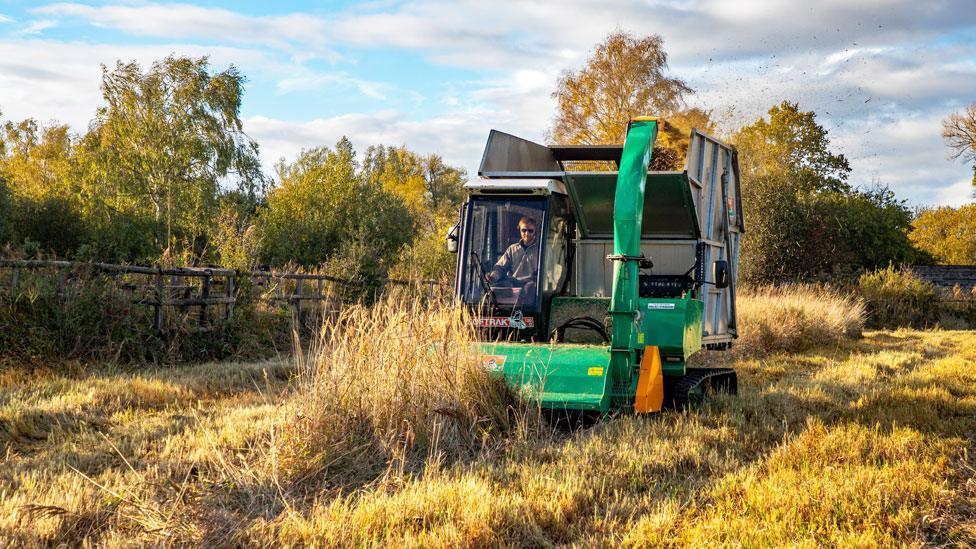
Now a specialised fenland harvester cuts vegetation on a three-year rotation, to sustain the habitat of rare species like fen violet and marsh carpet moth
Former agricultural land has been restored into a variety of wetland habitats, aided by hardy cattle and a herd of Konik ponies.
The reserve was registered as the most species-rich area of the UK in 2019, with more than 9,300 animals recorded.
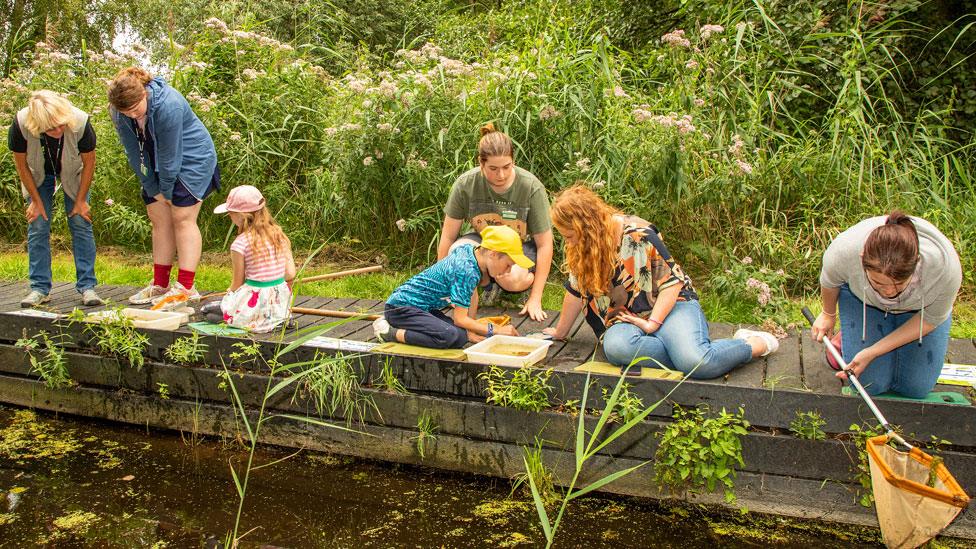
At least 70,000 visitors arrive every year, with trust hoping many more will take part in the reserve's 125th celebrations in May
This included 188 endangered species such as the bittern, marsh harrier, great crested newt and the tiny soprano pipistrelle bat.
Ms Sedgwick, the trust's visitor operations and experience manager, said: "We're very much looking forward to our anniversary programme of events and activities kicking off in May to celebrate this milestone. There will be plenty for visitors to see, do and take part in."

Follow East of England news on Facebook, external, Instagram, external and X, external. Got a story? Email eastofenglandnews@bbc.co.uk, external or WhatsApp 0800 169 183
Related topics
- Published15 December 2023
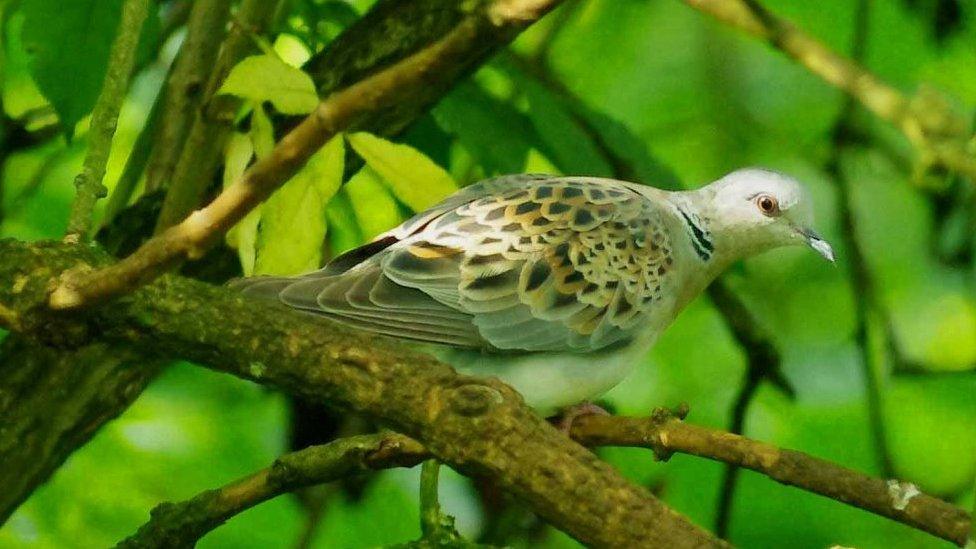
- Published24 November 2023
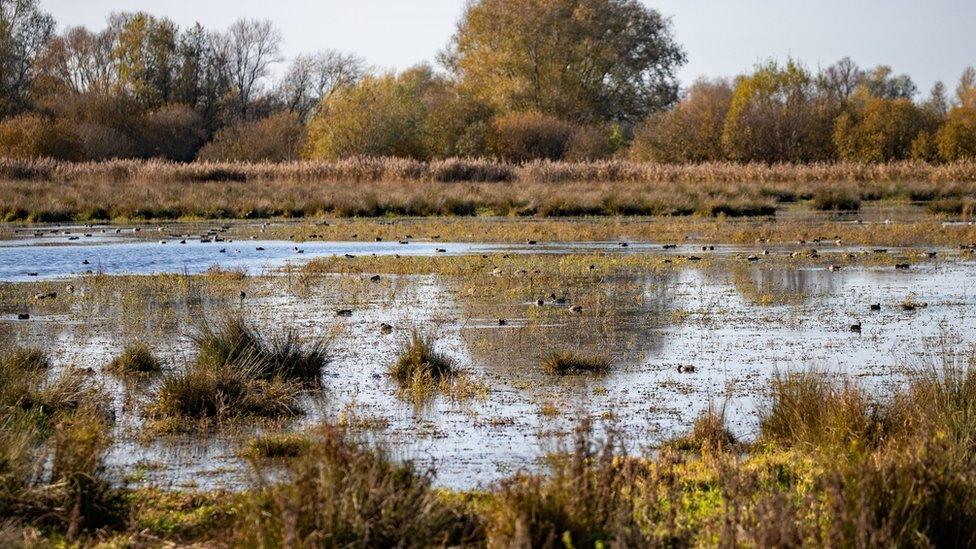
- Published28 March 2023
- Published1 May 2019
